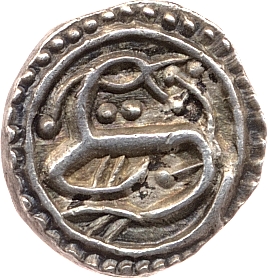Scot and lot facts for kids
Scot and lot was an old phrase used in England, Wales, and Ireland during the Middle Ages. It described the local rights and duties people had in their towns, called boroughs. Basically, it meant what you had to do for your community and what you got back from it.
Contents
What Was Scot and Lot?
The phrase "scot and lot" helped define who was a full member of a town. It was all about being part of the local community. If you paid your share and took part in town life, you had certain rights.
The Meaning of 'Scot'
The word 'scot' comes from an old English word, sceat. This was the name of a common coin used a very long time ago in Anglo-Saxon England.
From Old English 'Sceat'
Long ago, people had to pay money to help build and fix things like drainage systems and walls that held back water in low-lying areas. This payment was often a sceat coin. So, the payment itself started to be called sceat. In towns, this payment helped maintain the town walls and defenses.
How 'Scot' Changed Over Time
Later, when the Normans came to England, the word sceat changed to scot. This happened because of the French word escot. Even in the 1800s, some low-lying farmland in England was still called "scot-land." Over time, 'scot' became a general word for any local payment or tax. If someone didn't have to pay but still got the benefits, they were said to get off 'scot-free'.
The Meaning of 'Lot'
The word 'lot' means a 'portion' or 'share'. You might hear it in words like 'lottery' (where you get a share if you win) or 'allotment' (a small piece of land given for use). So, 'scot and lot' together meant the local payments someone made and the share they received from local services. More simply, it meant their rights and duties in local government.
Scot and Lot in Action
This idea of "scot and lot" was important for how towns were run and even for who could vote.
Rules in Medieval Towns
In medieval Ireland, people from France living there had to pay scot and lot. The city of Waterford even had a rule about it. To enjoy the city's freedoms, you had to live there and pay your scot and lot. This showed you were a true resident and part of the community.
Voting Rights in Old England
Parliament, which makes laws, grew from the king's old court. In the House of Commons, regular people represented their areas. Towns were a bit different from the usual feudal system, where land was given in exchange for loyalty and service. This made their voting rules a bit unclear. Before the mid-1800s, towns had different ways of deciding who could vote. In some towns, only people who paid scot and lot were allowed to vote.
Why Some Towns Had Few Voters
In medieval times, this might mean only a few dozen people could vote. But by the 1800s, in some "scot and lot" towns, tens of thousands of people could qualify. However, in a town called Gatton, only two people qualified to vote! Since each town sent two Members of Parliament (MPs), this meant each MP for Gatton represented just one voter. These strange situations, like Gatton, were one of the reasons why the Reform Act 1832 was passed. This law changed how voting worked to make it fairer. There were also two "scot and lot" towns in Wales: Flint Boroughs (from 1727 to 1832) and Haverfordwest.
A similar word, skat, is used in the old laws of Orkney and Shetland islands.
Sources
- Danby Palmer Fry, 'On the Phrase Scot and Lot', in Trans. Philological Society (1867), pp. 167–197;
- C. Gross, Gild Merchant, i. c. iv.
- Pollock and Maitland, Hist. Eng. Law, p. 647.
 | Anna J. Cooper |
 | Mary McLeod Bethune |
 | Lillie Mae Bradford |


